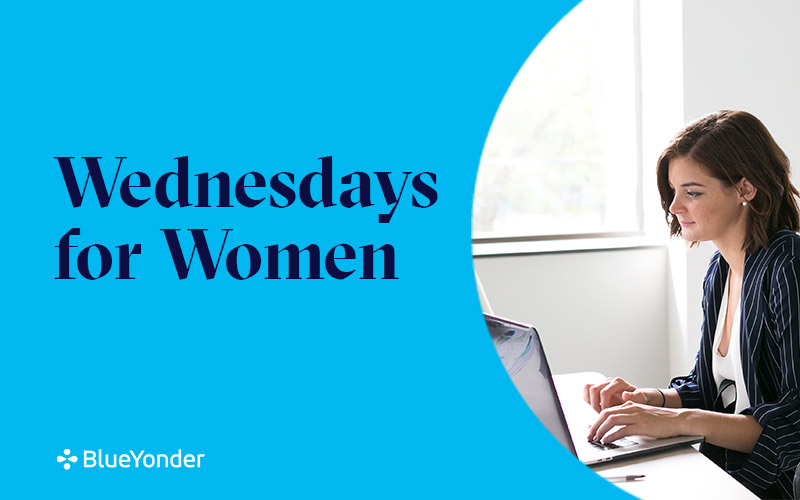COVID-19 has affected all of us, from our workplaces now being in our homes, to juggling families and our day jobs, and more. One area that may not come to mind right away when thinking of the effects of this pandemic is mental health and wellness.
I work on Blue Yonder’s associate success team and one of my goals has been to help foster an environment where associates with disabilities feel comfortable disclosing them. It’s an unfortunate reality that some people choose not to disclose a hidden disability in the workplace because of perceived stigmas, concerns about misperceptions, denial and lack of awareness.
Now more than ever, we all need to be empathetic as we adjust to this new normal. In particular, we should take care to consider how COVID-19 and the resulting changes in our work environment – and approaches to how we work – might be impacting those with disabilities differently than others.
Why is mental health awareness even more personal for me? It’s because I was diagnosed with bipolar 2 when I was 16. In short this means I can have extremely low lows at times. Those lows may be different to what most people would consider a bad day, and how those lows impact my work varies.
I’ve been working at Blue Yonder for about four-and-a-half years now. 2019 was probably the hardest year for me due to personal circumstances. There were some weeks I physically could not get out of bed and I slept 16+ hours a day, missing more work than usual. I lost about 12 pounds in one month.
I have been extremely fortunate to have a close relationship with my current manager, Heather Meheut. She could tell I wasn’t my normal “bubbly” self and I felt comfortable sharing my situation with her. She was more than understanding and if there was a day where I knew I could not interact with people, we would make adjustments to how I worked. If I needed to work from home an extra day that week she was more than willing to be flexible with me.
In consultation with my doctor, I was prescribed some additional medication that helped in some areas, but affected my work. It was a lot harder to concentrate. It took away ALL anxiety, but it also took away my sense of urgency to get things done. I’d like to think a good amount of anxiety is what made me good at my job, because before the new medication I had been able to complete work quickly and efficiently. But the new medication made me feel sort of “blah.” It was extremely hard to concentrate and get work done. Heather was empathetic and in tune with me and my work and gave me extra time completing projects or helped where she could.
As I look back on 2019, I couldn’t be more grateful for such a thoughtful and empathetic manager. She took time to understand my situation, was flexible with my work and my work schedule. She was there to listen when I needed it most. It’s sad to think that many people may experience similar or worse symptoms than I had with no one to speak to or without a considerate manager or team for support.
Jumping ahead to today, our mandated work-from-home as a result of COVID-19 has been weird for me. Isolation has been extremely tough, and I think this is the same for everyone. Again, Heather asks how I’m doing and not just how I am doing in quarantine, but how I am feeling with my mental health. She has been more than supportive and understands this isolation might be a little harder for me than others. In addition, Blue Yonder has done a great job in addressing mental health as well. Now more than ever, we are making sure to offer our associates with the information and support we need to support our physical and mental health.
I hope that by opening up about my experience, others with a hidden disability will be more inclined to share their own story or open up to their manager. I hope that managers consider that they may have a team member struggling but not brave enough to talk about it. I encourage managers to practice empathy and provide a safe environment for their team members to be able to bring the best version of themselves to work each day, understanding that if they can’t one day, they deserve space and grace to step back and bounce back. I speak from experience when I say that the more we educate our colleagues, and the more each of us understands the other – not just in these strange days of COVID-19 but every day – the more successful we can all be together.
Related posts
2 Comments
Comments are closed.


Thank you Devyn for sharing your very personal and important story. Like the saying goes, you never know what someone else is going through. Empathy and kindness is key. Much respect, you are a courageous soul.
Thank you Devyn for sharing your very personal and important story. Like the saying goes, you never know what someone else is going through. Empathy and kindness is key. Much respect, you are a courageous soul.